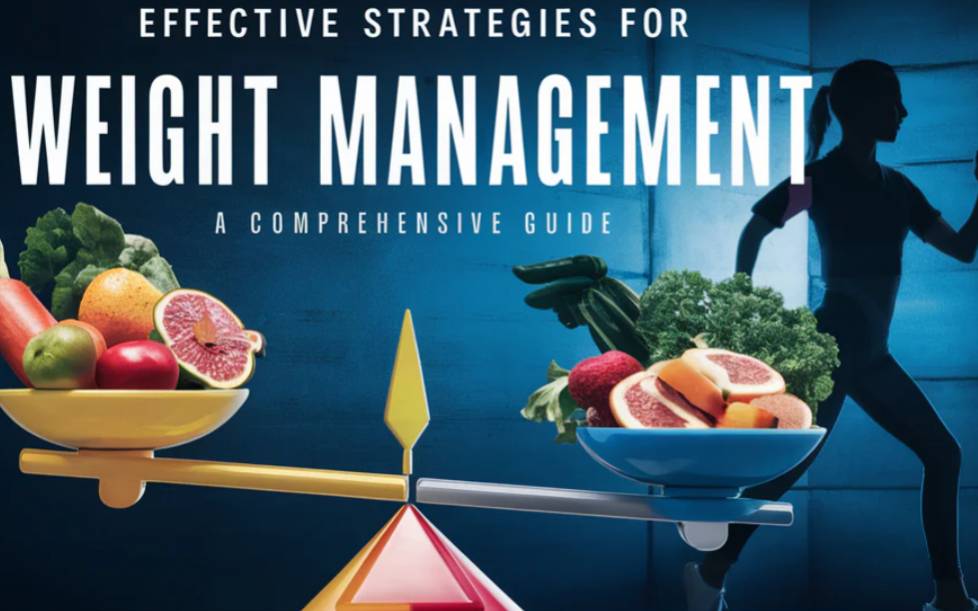Effective Strategies for Sustainable Weight Loss
Losing weight can often feel like a daunting challenge, but with the right approach, it becomes manageable and sustainable. This blog aims to explore effective strategies for achieving weight loss goals while maintaining a healthy lifestyle, emphasizing the importance of holistic well-being.
Understanding Weight Loss
Weight loss occurs when you consume fewer calories than your body burns. This principle, known as the calorie deficit, is fundamental to any weight loss strategy. However, it’s crucial to approach this goal mindfully and healthily, rather than resorting to fad diets or extreme measures.
The Importance of Setting Realistic Goals
When embarking on a weight loss journey, setting realistic and achievable goals is vital. Aim for a gradual weight loss of 1-2 pounds per week, as this is generally considered safe and sustainable. Drastic weight loss can lead to muscle loss, nutritional deficiencies, and a higher likelihood of regaining the weight.
Start by evaluating your current weight, understanding your body’s needs, and identifying a target weight that is healthy for you. Consider consulting with a healthcare professional or a registered dietitian to tailor your goals to your individual circumstances.
Focusing on Nutrition
Nutrition is a cornerstone of effective weight loss. Adopting a balanced diet rich in whole foods can significantly impact your progress.
Fruits and Vegetables: These foods are high in essential nutrients while being low in calories. Aim to fill half your plate with fruits and vegetables. They provide fiber, which aids digestion and keeps you feeling full longer.
Lean Proteins: Incorporating sources like chicken, turkey, fish, beans, and legumes into your meals can help maintain muscle mass while promoting satiety. Protein has a higher thermic effect than fats or carbohydrates, meaning your body burns more calories digesting it.
Whole Grains: Opt for whole grains over refined grains. Foods like brown rice, quinoa, and whole-grain bread are richer in fiber and nutrients, promoting fullness and providing sustained energy.
Healthy Fats: Don’t shy away from fats, but focus on healthy sources like avocados, nuts, seeds, and olive oil. Fats are essential for nutrient absorption and can also help keep you satisfied.
Limit Processed Foods: Processed foods are often high in added sugars, unhealthy fats, and empty calories. Aim to minimize these foods in your diet to reduce overall calorie intake and improve nutrition.
Monitoring Portion Sizes
Understanding portion sizes is crucial for weight management. Many people underestimate how much they eat, leading to unintentional overeating. Here are some tips to help with portion control:
Use Smaller Plates: Studies show that using smaller plates can trick your brain into thinking you’re eating more. This simple change can help control portion sizes.
Be Mindful of Serving Sizes: Familiarize yourself with standard serving sizes. This knowledge will help you make better choices and avoid excessive portions.
Listen to Your Body: Pay attention to hunger cues and eat until you’re satisfied, not stuffed. Mindful eating practices, such as eating slowly and savoring each bite, can enhance this awareness.
Staying Hydrated
Staying hydrated is often overlooked in weight loss discussions, yet it plays a significant role in overall health and appetite regulation. Water is essential for metabolism and can help control hunger.
Drink Plenty of Water: Aim for at least 8 cups of water a day. Sometimes, our bodies confuse thirst with hunger, leading to unnecessary snacking.
Consider Drinking Water Before Meals: Consuming a glass of water before eating can help reduce overall food intake by promoting a feeling of fullness.
Incorporating Regular Exercise
Exercise is a crucial component of a successful weight loss plan. Not only does it burn calories, but it also helps build muscle, which can increase your resting metabolic rate.
Find Activities You Enjoy: Exercise doesn’t have to be a chore. Whether it’s dancing, hiking, cycling, or swimming, find activities that you look forward to. This enjoyment will make it easier to stick with your routine.
Aim for Consistency: Strive for at least 150 minutes of moderate aerobic activity each week, such as brisk walking or cycling. Pair this with strength training exercises twice a week to build muscle and improve overall fitness.
Incorporate Movement into Your Day: Look for opportunities to be active throughout the day. Take the stairs instead of the elevator, walk during lunch breaks, or engage in activities that require physical effort.
Getting Enough Sleep
Sleep plays a critical role in weight management, often underestimated in its importance. Lack of sleep can disrupt hormones that regulate hunger, leading to increased appetite and cravings for unhealthy foods.
Aim for Quality Sleep: Try to get 7-9 hours of quality sleep per night. Establish a relaxing bedtime routine, keep a consistent sleep schedule, and create a sleep-friendly environment.
Understand the Impact of Sleep Deprivation: Sleep deprivation can lead to increased levels of ghrelin (the hunger hormone) and decreased levels of leptin (the satiety hormone), making it harder to control cravings and adhere to your weight loss plan.
Managing Stress
Chronic stress can significantly affect eating habits, often leading to emotional eating or cravings for unhealthy foods. Finding ways to manage stress is essential for successful weight loss.
Incorporate Stress-Reducing Activities: Consider practices like yoga, meditation, or deep breathing exercises. These activities can help lower cortisol levels, a hormone linked to increased appetite and cravings.
Stay Connected: Maintaining social connections can provide emotional support and help reduce feelings of isolation or stress. Engage in activities with friends and family that promote laughter and joy.
Tracking Your Progress
Keeping track of your food intake and exercise can enhance accountability and provide valuable insights into your habits.
Use a Food Diary or Apps: Recording what you eat can help you become more aware of your habits and identify patterns. Many apps make tracking easy and convenient.
Set Regular Check-Ins: Weigh yourself weekly or bi-weekly to monitor progress. However, remember that weight can fluctuate for various reasons, so don’t get discouraged by temporary setbacks.
Seeking Support
Having a support system can make a significant difference in your weight loss journey. Whether through friends, family, or professional support groups, sharing your goals and challenges can provide encouragement and motivation.
Consider Professional Guidance: Working with a registered dietitian or a certified personal trainer can provide personalized advice and strategies tailored to your needs.
Join Support Groups: Many communities offer weight loss support groups. Connecting with others who share similar goals can provide a sense of camaraderie and accountability.
Overcoming Challenges
Weight loss is rarely a straight path. You will encounter obstacles and challenges along the way. Understanding these potential hurdles can prepare you to navigate them effectively.
Plateaus: It’s common to hit a plateau where weight loss stalls. This can happen for various reasons, including metabolic adaptations. When this occurs, consider adjusting your diet or exercise routine to re-stimulate weight loss.
Emotional Eating: Many people struggle with emotional eating. Identifying triggers and developing alternative coping strategies, such as journaling or talking to a friend, can help manage this behavior.
Social Situations: Social gatherings often involve food that may not align with your goals. Plan ahead by eating a healthy snack before attending or bringing a healthy dish to share.
Celebrating Non-Scale Victories
While the scale can be a useful tool, it’s essential to celebrate non-scale victories that reflect progress in other areas.
Improved Energy Levels: As you adopt healthier habits, you may notice increased energy and improved mood.
Better Sleep Quality: Improved nutrition and exercise often lead to better sleep quality, enhancing overall well-being.
Increased Strength and Endurance: As you incorporate regular exercise, you may find yourself able to lift heavier weights, run longer distances, or engage in physical activities with greater ease.
Conclusion
Weight loss is a personal journey that requires patience, commitment, and a comprehensive approach. By setting realistic goals and making gradual changes to your lifestyle, you can achieve and maintain your desired weight while improving your overall health.
Focus on nutrition, exercise, hydration, sleep, and stress management as integral parts of your journey. Remember, the key to success lies in creating habits that you can sustain for the long term. Embrace the journey, celebrate your progress, and prioritise your well-being above all.




No comments yet
Be the first to share your thoughts!